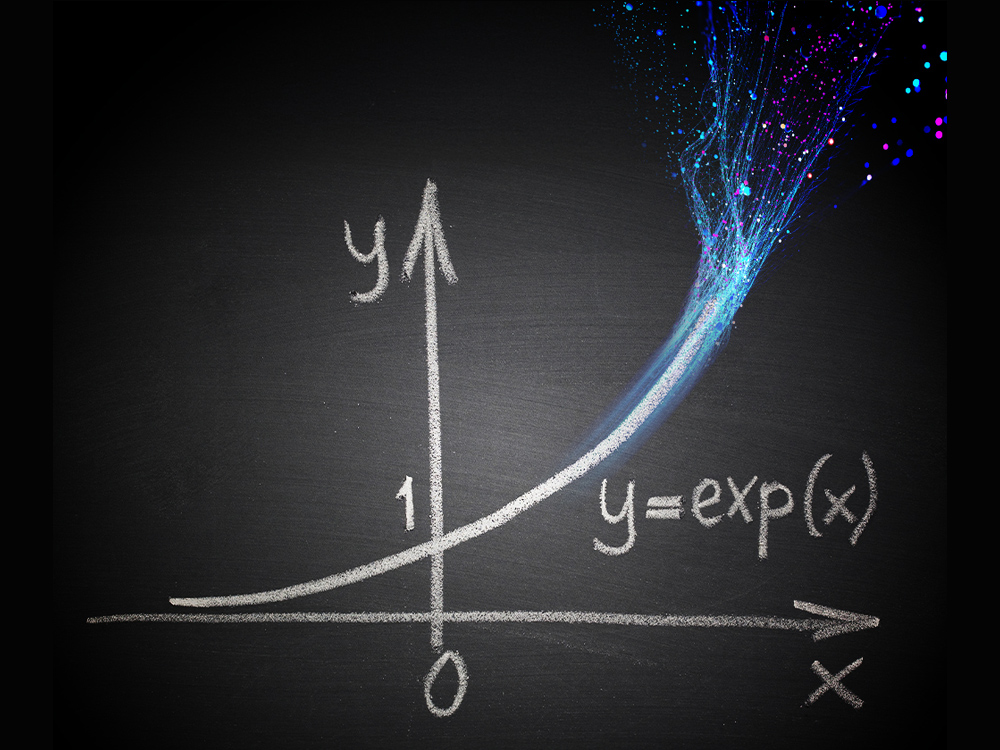DARPA’s Exponentiating Mathematics is soliciting proposals for an artificial intelligence coauthor that exponentially increases the rate of progress in mathematics
May 5, 2025
Math is the source of enormous technological innovation and surprise. However, making mathematical breakthroughs has historically been a slow, painstaking process, sometimes taking decades or even centuries.
This inherent slowness limits the potential of mathematics to address pressing challenges in fields ranging from national security to medicine. To tackle this bottleneck, DARPA’s Exponentiating Mathematics (expMath) program will explore how to accelerate the pace of mathematical discovery using the power of artificial intelligence (AI).
The current mathematical research process relies heavily on traditional methods and workflows that limit the speed and scale of progress. For instance, think of mathematicians working individually or in small groups, developing proofs on chalkboards, and publishing findings in journals.
The expMath program seeks to revolutionize this process by developing AI systems that can act as "co-authors," assisting mathematicians in breaking down complex problems into smaller, more manageable components called lemmas. These lemmas serve as crucial building blocks, enabling researchers to build upon each other's work and accelerate the overall pace of discovery.
The program will explore a variety of AI approaches, including large language models, reinforcement learning, program synthesis, and more. The program distinguishes itself by focusing on the practical needs of mathematicians. It aims to bridge the gap between the AI and mathematics communities to lower the barrier of entry to do more exploratory and innovative work with math.
“Just as computers once transformed calculations, expMath technology could put powerful mathematical tools at everyone’s fingertips, redefining the pace of discovery if successful,” said DARPA expMath program manager Patrick Shafto. “To ensure continued U.S. technological leadership, it is necessary to innovate in the practice of mathematics, leveraging U.S. leadership in AI.”
By accelerating mathematical progress, expMath has the potential to unlock breakthroughs in a wide range of critical areas, from cryptography and computer science to materials science and fluid dynamics. It could also democratize access to advanced mathematics, transforming how mathematics is taught and learned at all levels.
DARPA structured the program into two technical areas: one focused on advancing the state-of-the-art in AI for mathematics, and the other to evaluate the effectiveness of these AI systems in tackling professional-level mathematical problems. Developing robust evaluation metrics for assessing AI performance at the frontier of mathematical research is a key challenge that the program will address.
DARPA is currently soliciting proposals for expMath. For more details and instructions on how to submit your idea, visit Sam.gov.
The goal of Exponentiating Mathematics (expMath) is to radically accelerate the rate of progress in pure mathematics by developing an AI co-author capable of proposing and proving useful abstractions.
###
Media with inquiries should contact DARPA Public Affairs.

Opportunities
HR001125S0010
- Published: April 30, 2025
- Deadline: July 8, 2025
